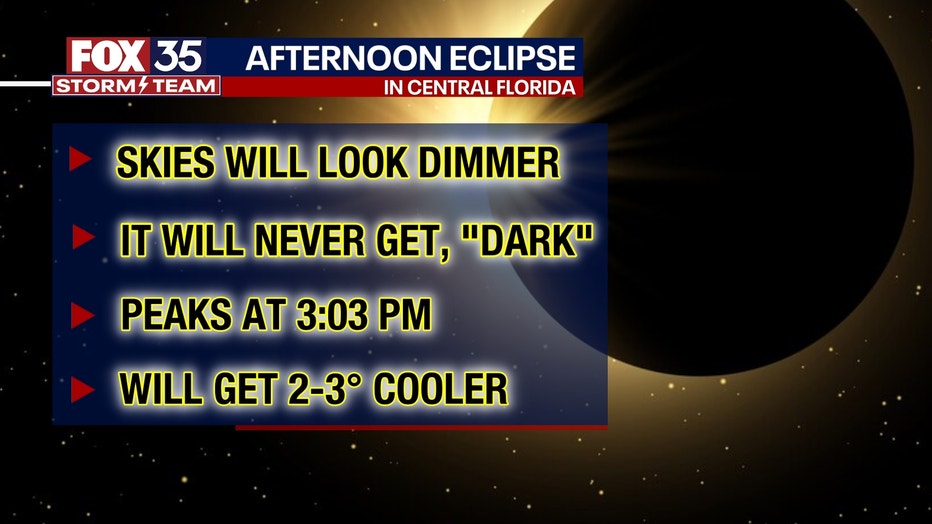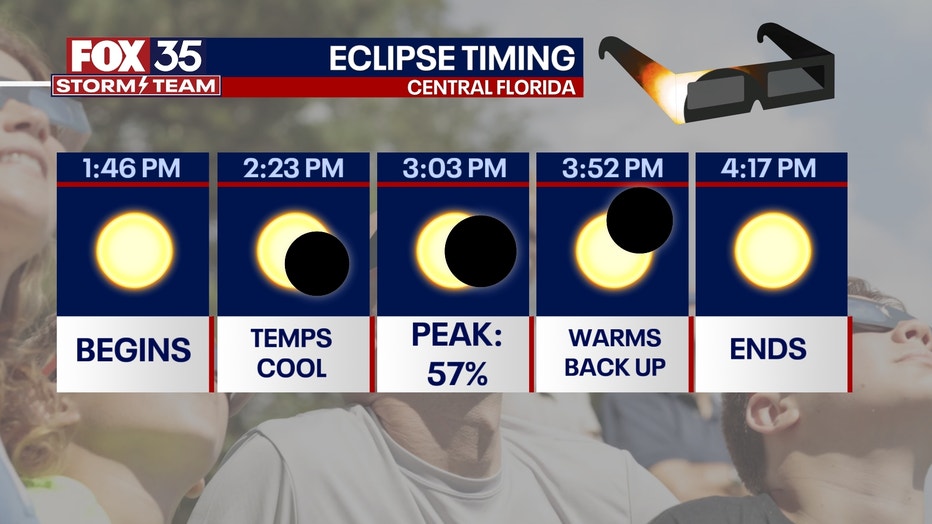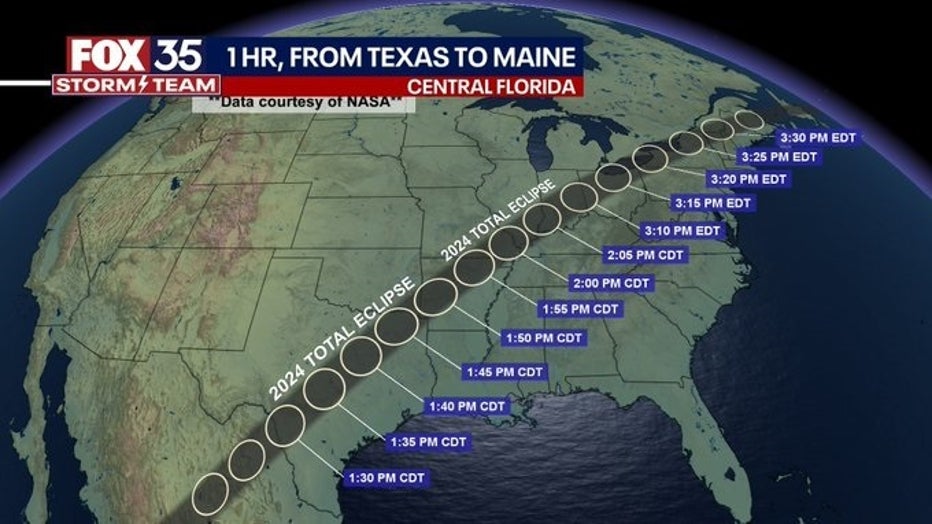2024 Solar Eclipse: Zip code online tool shows when celestial event is visible near you
ORLANDO, Fla. - FOX 35 Total Eclipse Special Coverage: FOX 35 is streaming live coverage of the solar eclipse, including the moment of totality across the country, until 5 p.m. Watch live in the video player below.
The highly anticipated 2024 solar eclipse is set to occur on Monday, April 8, dimming skies across a generous path of North America.
NASA has unveiled an online tool dubbed the Eclipse Explorer, that allows users to visualize the forthcoming eclipse's appearance from their location.
By entering their zip code, residents will see a countdown to the peak eclipse viewing time in their area, along with the current temperature, potential rain chances and cloud coverage.
RELATED HEADLINES:
- Solar Eclipse 2024 live: Peak times in Orlando, how to watch in Central Florida
- 2024 Eclipse in Florida: Maps, timeline, path of totality
A visual of what the eclipse coverage would look like between 1:47 p.m. ET (when the eclipse begins) and 4:17 p.m. ET (when the eclipse ends) will also appear.

Solar Eclipse 2024: The importance of viewing the eclipse safely
Retina surgeon, Dr. Gokul Kumar, talks about the importance of viewing the eclipse safely and the damage it could cause if you don't.

What time is the solar eclipse in Florida?
The rare phenomenon – in which the moon passes between the sun and Earth, casting a shadow over parts of Earth and blocking the face of the sun for observers – will start in Mexico, before entering the United States in Texas, then through Oklahoma, Arkansas, Missouri, Illinois, Kentucky, Indiana, Ohio, Pennsylvania, New York, Vermont, New Hampshire, and Maine, according to NASA.
In Orlando, Florida, the solar eclipse will begin at 1:46 p.m., before peaking at 3:03 p.m. with 57% coverage expected (partial solar eclipse).

The eclipse will end shortly after 4:15 p.m.
Here's the peak times for other cities in Central Florida:
- Clermont: 1:45 p.m. - 4:16 p.m.
- Mount Dora: 1:46 p.m. - 4:17 p.m.
- The Villages: 1:45 p.m. - 4:17 p.m.
- Ocala: 1:45 p.m. - 4:17 p.m.
- Gainesville: 1:45 p.m. - 4:18 p.m.
- Sanford: 1:47 p.m. - 4:18 p.m.
- Titusville: 1:48 p.m. - 4:17 p.m.
- Melbourne: 1:48 p.m. - 4:17 p.m.
- Daytona: 1:48 p.m. - 4:18 p.m.
- Palm Coast: 1:48 p.m. - 4:19 p.m.

Fun fact: If you're in an airplane trying to stay inside of totality for the entire time it's over the USA from Texas to Maine, you'd have to be flying about 2,100 mph. It'll take an hour for the moon's shadow to travel from Texas to Maine.
Will clouds obscure our view of the solar eclipse?
A few high clouds will, at times, obscure the skies, but it shouldn't take away from the eclipse viewing this afternoon. Remember not to look directly at the sun. In order to view the eclipse, you want to use special glasses.

Solar Eclipse 2024: What time is the eclipse in Florida?
FOX 35 Storm Team Meteorologist Brooks Garners explains the best viewing time for the 2024 solar eclipse in Central Florida and provides a look at this week's forecast.

